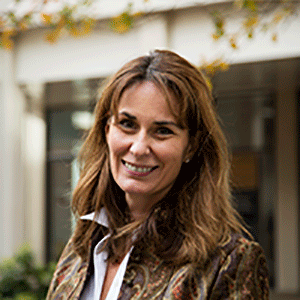Memory Activism and Child Victimhood in Bosnia and Herzegovina
GPS seminar and CEMES lecture with Professor Jasna Dragovic-Soso.
Victimhood as Resistance: Memory Activism and the War Children of Bosnia and Herzegovina
Victimhood narratives have been at the heart of two opposed political and social processes throughout the 20th Century and into the 21st. While they have fuelled extreme nationalist ideologies and provided justification for mass atrocity crimes, they have also been at the heart of humanitarianism and human rights activism, including, since the end of the Cold War, transitional justice (TJ) and peacebuilding in post-conflict states. Within this broader category of victimhood, stories about the suffering and death of children are perhaps the most potent. Socially constructed as a distinct category of humanity—vulnerable and blameless for any strife that befalls them and deserving of care and protection—children represent a key signifier in both nationalist victimhood discourses and in humanitarian and anti-war activism. Bosnia and Herzegovina, which experienced the longest and bloodiest of the Yugoslav wars of the 1990s and continues to face severe challenges to its sovereignty and national unity, represents a key site of this ‘victimhood paradox’ and the image of the child victim has been central to both nationalist and anti-nationalist causes.
This paper focuses on the ‘wartime child’ as a symbol of universal humanity and inter-ethnic reconciliation, examining two cases of memory activism within Bosnian civil society: a grassroots initiative in the town of Prijedor to commemorate the 102 local children killed in the war, and the work of the permanent Wartime Childhood Museum in Sarajevo created in 2017. It analyses the discourses and strategies focused on wartime child victims that these activists deploy to promote a narrative of reconciliation and to resist the divisive ethnification of the public space by nationalist politicians and other ethnic entrepreneurs.
Bio
 Jasna Dragovic-Soso is Visiting Professor at LSEE Research on South East Europe, Hellenic Observatory Centre for Research on Contemporary Greece & Cyprus, LSE and Emeritus Professor of International Politics and History at Goldsmiths, University of London. She has written extensively about memory politics, transitional justice, nationalism, state disintegration and international intervention, with a focus on former Yugoslavia and the post-Yugoslav region. She has provided expertise on the post-Yugoslav region to various non-academic stakeholders, including the FCDO and the House of Lords, non-governmental organizations in the UK and the Western Balkans, the Royal Court Theatre, the Carnegie Endowment/Aspen Institute Berlin International Commission on the Balkans, and British and international media outlets.
Jasna Dragovic-Soso is Visiting Professor at LSEE Research on South East Europe, Hellenic Observatory Centre for Research on Contemporary Greece & Cyprus, LSE and Emeritus Professor of International Politics and History at Goldsmiths, University of London. She has written extensively about memory politics, transitional justice, nationalism, state disintegration and international intervention, with a focus on former Yugoslavia and the post-Yugoslav region. She has provided expertise on the post-Yugoslav region to various non-academic stakeholders, including the FCDO and the House of Lords, non-governmental organizations in the UK and the Western Balkans, the Royal Court Theatre, the Carnegie Endowment/Aspen Institute Berlin International Commission on the Balkans, and British and international media outlets.
She is currently writing a book about truth commission initiatives and memory politics in the post-conflict Balkans and co-editing the Brill Handbook on Regions of Memory: Southeastern Europe. She is the author of ‘Saviours of the Nation’: Serbia’s Intellectual Opposition and the Revival of Nationalism (Hurst and McGill Queen’s University Press, 2003) and co-editor of three books, including State Collapse in South-Eastern Europe: New Perspectives on Yugoslavia’s Dissolution with Lenard J. Cohen (Purdue University Press, 2007) and Memory in Transition in Southeast Europe: Generational Change in a Time of Turmoil with Francesco Trupia (forthcoming Peter Lang, 2026). She co-edits the Palgrave book series on Memory Politics and Transitional Justice and is on the editorial board of the journal History and Memory. Her work has appeared in French, Italian, German and Serbian. From 2022 to 2024, she was Director of Centre for the Study of the Balkans and, from 2017 to 2020, Head of Department of Politics and International Relations at Goldsmiths, University of London.
